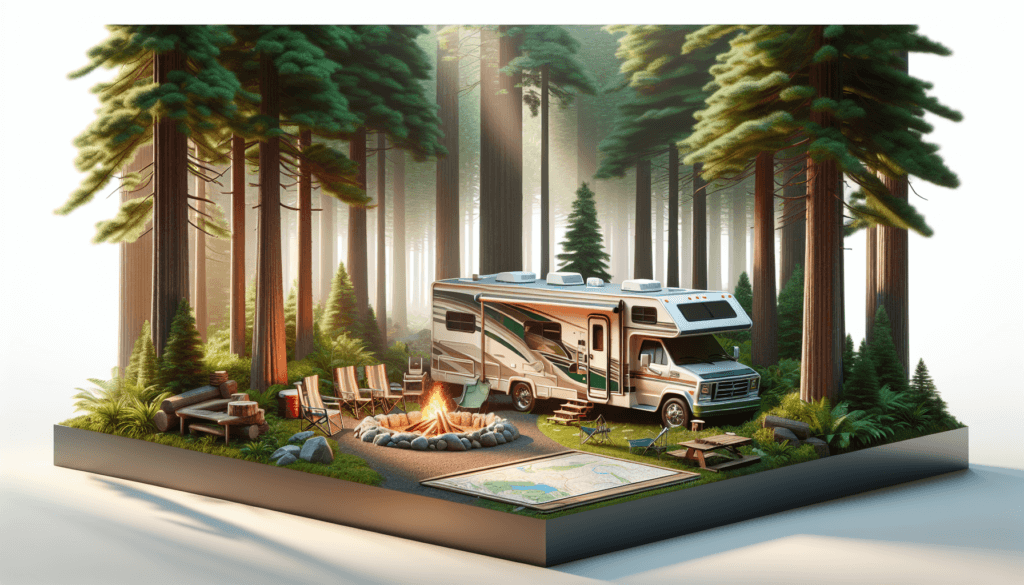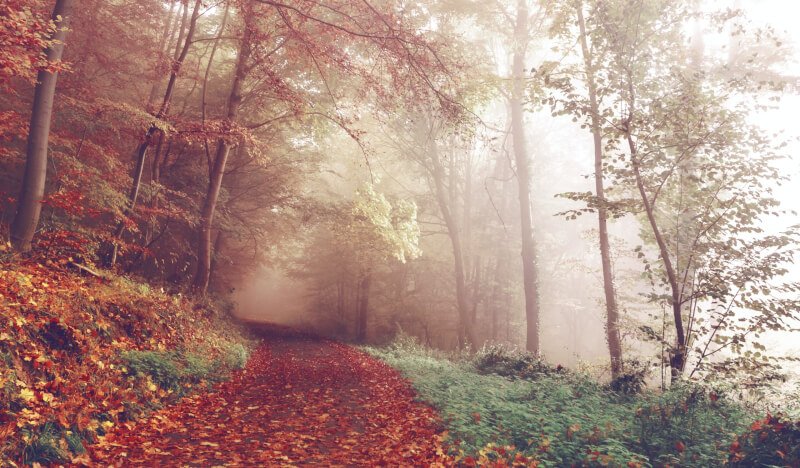Imagine escaping the hustle and bustle of everyday life and immersing yourself in the tranquility of nature. RV camping in the forest offers the perfect opportunity for a peaceful retreat. With the freedom of the open road and the beauty of the great outdoors, you can explore stunning landscapes and rejuvenate your mind, body, and soul. In this article, we will share some valuable tips to help you make the most out of your RV camping experience in the forest, ensuring a serene and unforgettable getaway. So pack your essentials, hop into your RV, and get ready to embark on an adventure like no other.

Choosing the Right Location
When it comes to RV camping in the forest, the first step is choosing the right location. To make an informed decision, take the time to research different forests in the area you plan to visit. Each forest has its own unique features, such as varying landscapes, wildlife, and amenities. By doing your research, you can find a forest that matches your preferences and interests.
Consider the accessibility and amenities of each forest you are considering. Some forests may have paved roads and designated RV campsites with hookups for water and electricity. Others may have more primitive campsites with limited amenities. Think about what you need in terms of accessibility and amenities to ensure a comfortable and enjoyable camping experience.
Additionally, be sure to check the campground regulations of the forests you are considering. Each forest may have its own set of rules and regulations regarding camping, such as quiet hours, pet policies, and campfire regulations. Familiarize yourself with these regulations to ensure that you can comply with them and have a smooth camping experience.
Preparing for the Trip
Before embarking on your forest camping trip, it is important to properly prepare. Start by checking your RV for any necessary maintenance. Ensure that your vehicle is in good working condition, with all systems and components functioning properly. This will help prevent any unexpected breakdowns or issues during your trip.
Pack essentials for a forest camping trip. This includes items such as camping gear, cooking utensils, bedding, toiletries, and clothing suitable for various weather conditions. It is also important to pack extra supplies such as food, water, and batteries in case of emergency or limited connectivity in the forest.
Speaking of limited connectivity, it is crucial to plan for it. Many forests have limited or no cell phone reception, so it is important to have a backup plan for communication. Make sure to inform your loved ones about your trip and provide them with a detailed itinerary. Consider investing in a satellite phone or a two-way radio to ensure you can communicate in case of emergencies.
Setting Up Camp
Once you have arrived at your chosen forest, it’s time to set up camp. Start by finding a level and sheltered spot for your RV. Look for a spot that provides a stable surface and protection from the elements, such as strong winds or heavy rain. This will help ensure that your RV remains stable and that you are comfortable during your stay.
Next, set up your RV properly. This includes leveling the vehicle, hooking up to any available utilities, and extending awnings or slide-outs if applicable. Take the time to read the instructions for your specific RV model to ensure that you are setting it up correctly. This will help prevent any issues or damage to your RV.
Create a cozy outdoor living area around your RV. Set up chairs, a table, and a canopy or shade to provide a comfortable and inviting space to relax. Consider bringing outdoor rugs or mats to keep the area clean and to define the space. Add personal touches such as lanterns, string lights, or decorations to make the space feel like home.
Ensuring Safety
When camping in the forest, it is important to be aware of the wildlife that may be present. Keep a safe distance from any animals you encounter and never feed them. Be especially cautious when it comes to larger wildlife, such as bears or moose, as they can be unpredictable. Familiarize yourself with the proper procedures for encountering wildlife in the specific forest you are camping in.
Follow fire safety precautions to prevent forest fires. Ensure that any campfires are established in designated fire rings or pits and are properly extinguished before leaving the campsite or going to sleep. Keep a bucket of water or a fire extinguisher nearby in case of emergencies. It is also important to check with the forest authorities regarding any fire restrictions or bans that may be in place.
Protect yourself from ticks and mosquitoes, which can be prevalent in forested areas. Wear long sleeves, pants, and socks to minimize exposed skin. Apply insect repellent containing DEET to further deter these pests. Regularly check yourself and your companions for ticks, as they can transmit diseases. Consider bringing a tick removal tool or tweezers for easy removal if necessary.
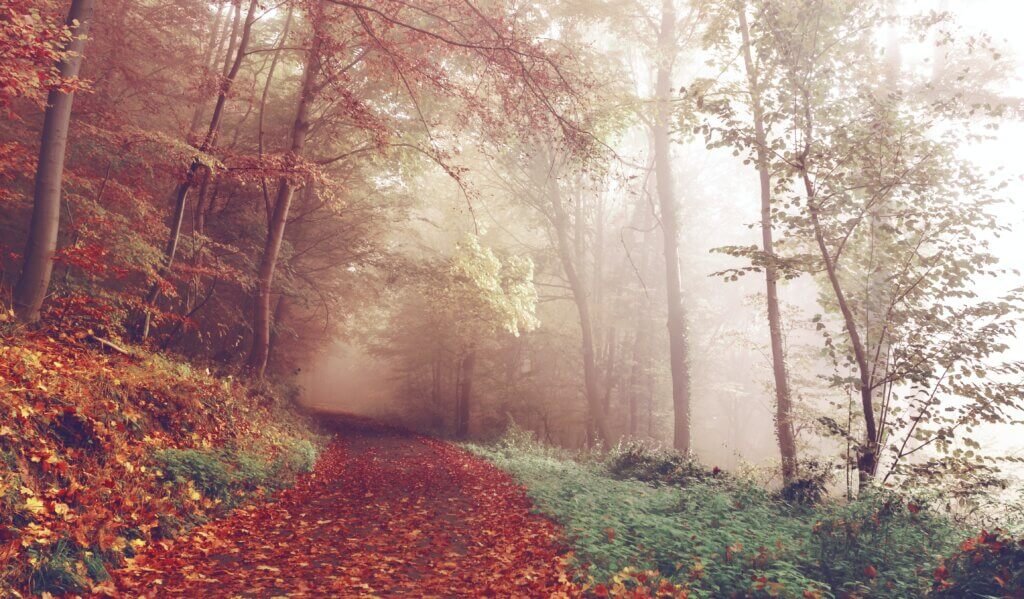
Respecting the Environment
As responsible campers, it is important to practice Leave No Trace principles. This means minimizing our impact on the environment and leaving the campsite as we found it. Pack out any trash or waste and dispose of it properly. Leave natural items such as rocks, plants, and wildlife undisturbed for others to enjoy.
Minimize noise and light pollution to preserve the tranquility of the forest. Keep music or loud conversations to a respectful volume and avoid using noisy equipment during quiet hours. Use low-intensity lighting or consider using red filters on flashlights to minimize light pollution and preserve the natural darkness of the forest, allowing for better stargazing opportunities.
Stay on designated trails to protect fragile ecosystems and minimize damage to the environment. Avoid stepping on vegetation or cutting through switchbacks. By sticking to established trails, you can help preserve the natural beauty of the forest for future generations to enjoy.
Enjoying Nature Activities
One of the main attractions of RV camping in the forest is the opportunity to engage in various outdoor activities. Hiking and exploring trails are popular options for immersing yourself in nature. Research the trails available in the forest you are camping in and choose ones that suit your fitness level and interests. Remember to bring appropriate footwear and stay hydrated during hikes.
Birdwatching and wildlife observation are also exciting activities to engage in. Bring a pair of binoculars and a field guide to identify different bird species and wildlife that may be present in the forest. Observe from a safe distance and avoid disturbing their habitats.
If you enjoy photography, the forest provides countless opportunities for capturing stunning images. Experiment with different angles and lighting to capture unique shots. Stargazing is another activity that can be truly memorable in a forested area with limited light pollution. Bring a star chart or use a stargazing app to help identify constellations and planets.
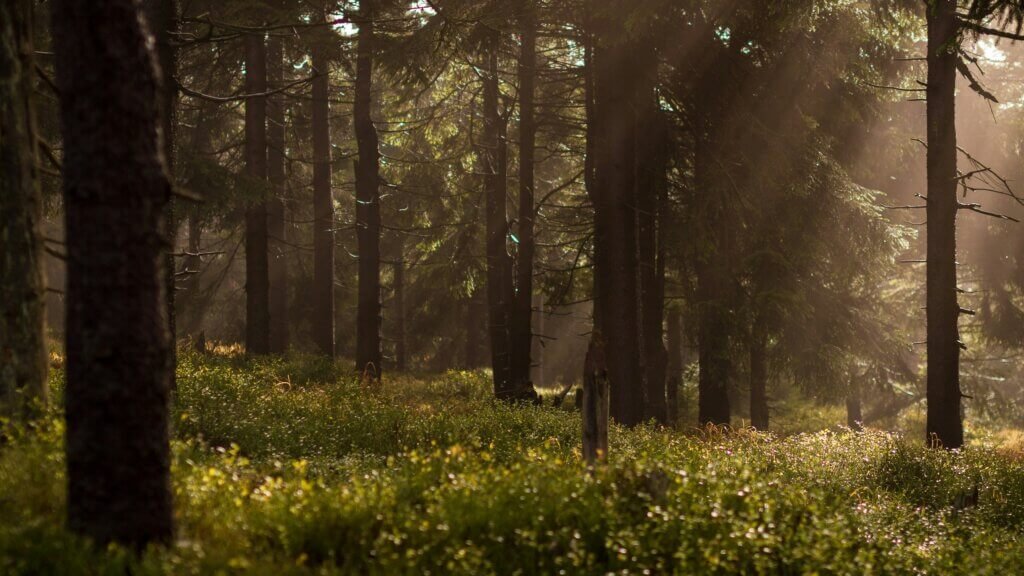
Staying Healthy and Well-Fed
To keep yourself nourished during your forest camping trip, pack healthy and nutritious food. Opt for non-perishable items that are easy to prepare, such as canned goods, dried fruits and nuts, and granola bars. Don’t forget to bring a cooler with ice packs for perishable items like fresh fruits and vegetables, meat, and dairy products.
Stay hydrated by drinking plenty of clean water. Pack enough water for your entire trip, as some forests may not have a readily available water source. Consider bringing a portable water filtration system or water purification tablets in case you need to access water from natural sources, such as streams or lakes.
Maintain a clean and sanitary campsite to prevent the spread of bacteria or pests. Wash your hands regularly with soap and water, especially before cooking or eating. Dispose of food waste properly, either by storing it in airtight containers or by using designated trash receptacles.
Managing Waste and Trash
Disposing of waste responsibly is an essential part of camping in the forest. Pack out your trash and dispose of it in designated bins or recycling centers. Avoid leaving any trash behind, as this can harm the environment and wildlife.
Minimize single-use items to reduce waste. Instead of using disposable plates, cups, and utensils, opt for reusable alternatives. Bring lightweight, compact, and washable camping dishes and utensils to lessen your impact on the environment.
Keep a tidy campsite by regularly cleaning up any trash or clutter. This helps prevent attracting wildlife to your campsite and improves the overall aesthetics of the area. Store your food in secure containers to prevent animals from accessing it and causing a mess.
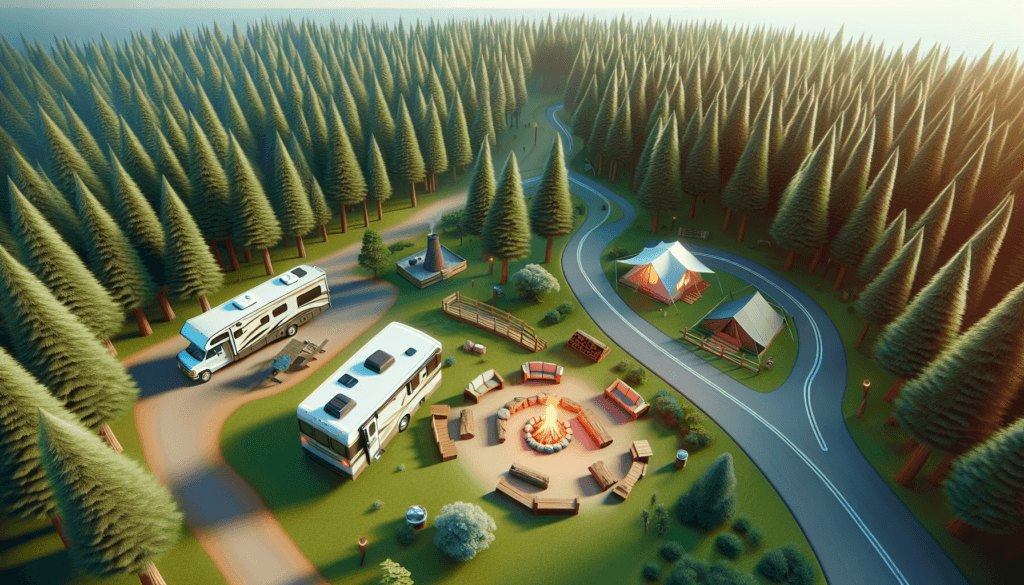
Respecting Quiet Hours
Respecting quiet hours is important to ensure a peaceful and enjoyable camping experience for everyone. Be considerate of other campers by keeping noise to a minimum during designated quiet hours. Avoid playing loud music or engaging in activities that may disturb others, such as shouting or using power tools.
Make an effort to minimize loud activities, even outside of quiet hours. Be mindful of your surroundings and try to keep noise levels low. This allows for a more peaceful and serene atmosphere, allowing everyone to fully appreciate the natural beauty of the forest.
Enjoy peaceful evenings by the campfire, but be mindful of noise levels. Keep conversations and laughter at a reasonable volume to maintain a peaceful ambiance. Relax, unwind, and enjoy the crackling of the fire while respecting the tranquility of the forest.
Departing and Leaving No Trace
As you prepare to leave your campsite, it is crucial to clean up and pack out your trash. Inspect the entire campsite, including the surrounding area, to ensure that you haven’t left any items behind. Double-check fire pits for any charred debris and make sure to properly extinguish any remaining embers.
Inspect your RV and camping gear for any forgotten items before departing. Check storage compartments and the surrounding area for any belongings that may have been left behind. Leaving no trace is not only respectful to the environment, but it also ensures that future campers can enjoy the beauty of the forest undisturbed.
Share information and reviews about your camping experience with others. Provide feedback about the campground, facilities, and any tips or recommendations you have for future campers. This allows fellow campers to make informed decisions and helps maintain a welcoming and positive camping community.
By following these tips and guidelines, you can have a peaceful and enjoyable RV camping experience in the forest. Remember to respect the environment, your fellow campers, and yourself. So pack your bags, hit the open road, and embark on a memorable retreat in nature’s embrace. Happy camping!
